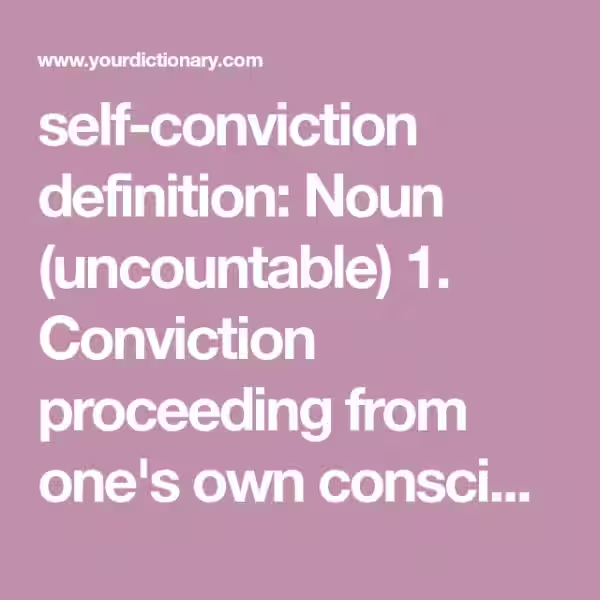Gentle and Lowly Quotes: Understanding the Heart of Christ

Many Christians struggle with feelings of inadequacy and distance from God. They may feel overwhelmed by a sense of their own sinfulness or believe that God is primarily focused on judgment rather than love. This article explores the concept of a "gentle and lowly" God, drawing on the insights of Dane Ortlund's book, Gentle and Lowly, to offer comfort and reassurance to those who feel lost or alienated. We'll explore how understanding Christ's gentle nature can alleviate these struggles and lead to a deeper and more intimate relationship with God.
The Gentle and Lowly Heart of Christ
Ortlund's Gentle and Lowly centers on the often-overlooked aspect of Jesus' character: his tender compassion for sinners and sufferers. The book challenges the perception of a distant, judgmental God, replacing it with a picture of a God whose very essence is overflowing with love, mercy, and empathy.
This isn't a simplistic, sentimental portrayal of God, but rather a deeply theological exploration rooted in Scripture. Ortlund meticulously examines biblical passages, demonstrating how Jesus' gentleness and humility are not weaknesses, but rather the very power of God's love in action. He consistently shows Jesus reaching out to the marginalized, the outcast, and the suffering with unwavering kindness and patience.
God’s Relentless Pursuit of Sinners
A core message of Gentle and Lowly is the relentless nature of God's love for us. Ortlund emphasizes that God's love isn't conditional; it doesn't depend on our good behavior or our attempts to meet certain requirements. Instead, God's love actively pursues us, even in the midst of our sin and rebellion.
This is a profoundly comforting message for those who feel unworthy or constantly fall short of God's expectations. It liberates us from the burden of performance-based Christianity, allowing us to rest in the knowledge that God's love is unconditional and unwavering. It's a love that precedes any effort on our part, a love that chases after the lost sheep, the prodigal son, and each one of us.
Understanding the "Heart" of Christ
Ortlund's work delves into the biblical understanding of the "heart," defining it not merely as emotions, but as the central motivating force of a person—their core identity and driving purpose. Understanding Christ's heart, therefore, involves understanding His deepest motivations and desires towards humanity.
This understanding reveals a God who isn't passively waiting for us to change, but actively desires our restoration and fellowship. His heart is not one of judgment but of profound compassion. He doesn't condemn us for our sins but welcomes us into His embrace, offering forgiveness and healing.
Embracing Grace and Overcoming Self-Condemnation
Gentle and Lowly directly addresses the struggles of believers, acknowledging the reality of spiritual dryness, doubt, and feelings of unworthiness. These experiences, Ortlund argues, are not indicators of God's displeasure, but rather opportunities for deeper intimacy and dependence on Him.
The book encourages readers to replace self-condemnation with a deep understanding of God's boundless love and acceptance. It's a powerful antidote to the legalistic and performance-based approaches to faith that often leave believers feeling anxious and inadequate. Through scriptural examples, Ortlund shows how embracing grace leads to freedom from the weight of guilt and fear.
Gentle and Lowly Quotes in Action
While specific quotes from the book cannot be directly reproduced here, the overarching message is one of profound comfort and reassurance. The essence of the "gentle and lowly" quotes is found in the actions and words of Jesus himself. Consider these illustrative points:
- Jesus' interaction with the woman at the well (John 4): Despite societal norms, Jesus shows compassion and grace to a woman ostracized by her community. This act demonstrates a gentleness that transcends judgment and prejudice.
- Jesus' healing of the sick and afflicted: These acts of mercy reveal a heart that feels deeply for the suffering of others, a heart that desires to alleviate pain and bring healing.
- Jesus' willingness to die for sinners: This ultimate act of sacrifice underscores the depth of God's love and his unwavering commitment to those who have placed their faith in Him.
Finding Solace and Strength in Christ’s Compassion
Ultimately, Gentle and Lowly is a call to embrace the profound truth of God's relentless pursuit of sinners and His unwavering commitment to those who have placed their faith in Him. It encourages readers to find solace and strength in the compassionate heart of Jesus.
The book is not merely a theoretical exploration of theology; it's a practical guide to experiencing the transformative power of God's love. By understanding and embracing the "gentle and lowly" nature of Christ, we can move from a place of fear and self-condemnation to one of genuine peace, joy, and intimacy with God. It's an invitation to a relationship characterized by grace, mercy, and unwavering love.
Frequently Asked Questions about Dane Ortlund’s “Gentle and Lowly”
What is the main theme of "Gentle and Lowly"?
The central theme of "Gentle and Lowly" is the compassionate and tender heart of Jesus Christ. Ortlund challenges the common perception of God as distant, judgmental, or primarily focused on wrath, arguing that the core of Jesus' character—and thus God's—is overflowing with love, mercy, and compassion, especially towards those who feel broken or alienated. The book emphasizes God's relentless pursuit of sinners and His unwavering love, even in the face of human unworthiness.
How does the book portray the character of Jesus?
The book portrays Jesus as the "Gentle and Lowly" one (Matthew 11:29), highlighting his kindness, patience, and empathy towards the marginalized and suffering. This gentleness is presented not as a weakness, but as the very power of God's love in action. Ortlund uses biblical narratives to demonstrate this consistently throughout the Gospels.
What does the book say about God's love for sinners?
Ortlund emphasizes that God's love for sinners is relentless and unconditional. It's not dependent on human effort or deservingness; rather, God's love actively pursues and embraces sinners. The book counters the idea that God is waiting for humans to meet certain conditions before extending His grace. His love is the initiative, freely given.
How does the book address the struggles of believers?
"Gentle and Lowly" acknowledges the reality of suffering, doubt, spiritual dryness, and feelings of unworthiness among believers. It reassures readers that these experiences are not signs of God's disfavor, but opportunities for deeper intimacy with Him and increased dependence on His grace. The book offers comfort and encouragement to those struggling with sin, doubt, or hardship.
What is the book's approach to faith?
Ortlund critiques legalistic and performance-based approaches to faith, advocating instead for a grace-filled and rest-oriented Christian life. He emphasizes the importance of mercy and acceptance, encouraging readers to replace anxiety and self-condemnation with a deep understanding of God's boundless love. It's a call to embrace God's relentless pursuit and unwavering commitment.
How does "Gentle and Lowly" define the "heart" of Christ?
The book defines the "heart" of Christ not merely as emotions, but as the central motivating force of his being—his core identity and driving purpose. Understanding Christ's heart involves grasping his deepest motivations and desires towards humanity, emphasizing his unconditional love that endures despite our failures and sins.
What is the key difference between human love and Christ's love, as presented in the book?
The book contrasts human love, which often has limitations and can be broken by betrayal or repeated offenses, with Christ's limitless love. Christ's love persevered even through betrayal and suffering, culminating in the ultimate sacrifice on the cross. His love knows no bounds and actively seeks us even in our sinfulness.
How does the book address the issue of "law-ishness"?
Ortlund identifies "law-ishness" as a self-righteousness that can often go undetected. He encourages a shift from this self-focused perspective to one of complete adoption into God's family, a mindset of grace and belonging made possible by Christ's sacrifice. This surrender to God's grace unlocks spiritual freedom and a truly fulfilling life.







